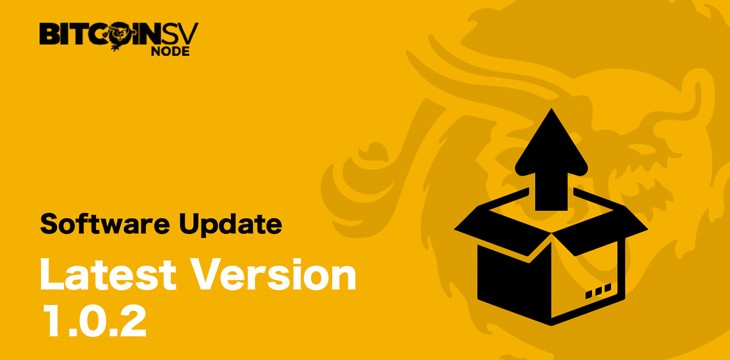|
Getting your Trinity Audio player ready...
|
Last February 17, the Bitcoin SV (BSV) Node team released its optional software upgrade v.1.0.2 containing minor bug fixes and additional feature changes, which were deferred until after the recent Genesis upgrade to “minimize deployment risks during the upgrade process.” The latest software release comes after the much-awaited Genesis upgrade that took place last February 4 as a hard fork protocol upgrade.
Version 1.0.2 includes an updated exception processing during validation as well as an updated orphan transaction processing. It also makes block stalling timeout configurable, uses_fseeki64 in Windows build, and provides option to ban peers based on their user agent.
The option software upgrade also fixes assert in ProcessHeaderMessages, JSON bug, bsv-genesis-large-blockfile-io.py functional test and sanitiser warnings re prevector.
The long-planned Genesis upgrade included a set of protocol restoration changes that represent a near full return to the original Bitcoin protocol and stabilize it, further allowing it to scale by ridding limits set upon a block effectively. Genesis ushers in the full potential of Bitcoin’s use on the blockchain. By removing the restrictions on a block and enabling scaling, the BSV blockchain will thus open to supporting increasingly higher transaction volumes and more transaction fees for miners. Also, miners will be in charge of deciding block size limits based on network activity.
A specific change in the Genesis upgrade aside from removing block size limits includes ‘restoring full original functionality’ of the Bitcoin Script and the Pay to Script hash that was standardized in Bitcoin Improvement Protocol 16 (BIP 16).
BitMEX’s Research team has stated it has not detected a chainsplit. Bitfinex announced that it would support the new BSV hard fork, becoming one of the first exchanges to make such an announcement. The overall design of this change appears to be aimed at the objective of BSV to handle an “array of data, tokens, smart contracts, content delivery, enterprise applications, the Internet of Things, and other uses.”
Because of Genesis, Bitcoin SV usage is predicted to explode over the coming months as most network-wide limits are removed from the scripting language and network propagation rules. News of the hard fork has even sparked speculation amongst traders of a BSV token price pump. After BSV’s January rise in price, it sets among the top tokens by market capitalization, which at the time of writing is approximately $5.2 billion.
There has been a long-overdue call to remove the limits due to the block subsidy “halving” event that happens in May. At which time, the reward that miners receive diminishes from 12.5 Bitcoin to 6.25. Miners are in this to earn a profit, and without the subsidy, mining BTC may not be profitable. BTC completely changed, mainly due to the software soft fork Segwit (Segregated Witness), implemented on BTC blockchain in August 2017. Because of BTC’s 1MB block limit for transactions, the queue is longer making transactions longer to confirm and fees higher. That, along with many other changes to the protocol, has essentially made BTC unusable except as a rare “collectible.”
With Bitcoin now restored to its original vision, more organizations could be expected to begin announcing Bitcoin integration into their business models as the Genesis upgrade proves itself capable of scale. Enterprises were potentially at bay considered by high transaction fees and the continually changing protocol. The Genesis upgrade presents itself as a possible catalyst for change in the way people approach Bitcoin.

 02-25-2026
02-25-2026 




